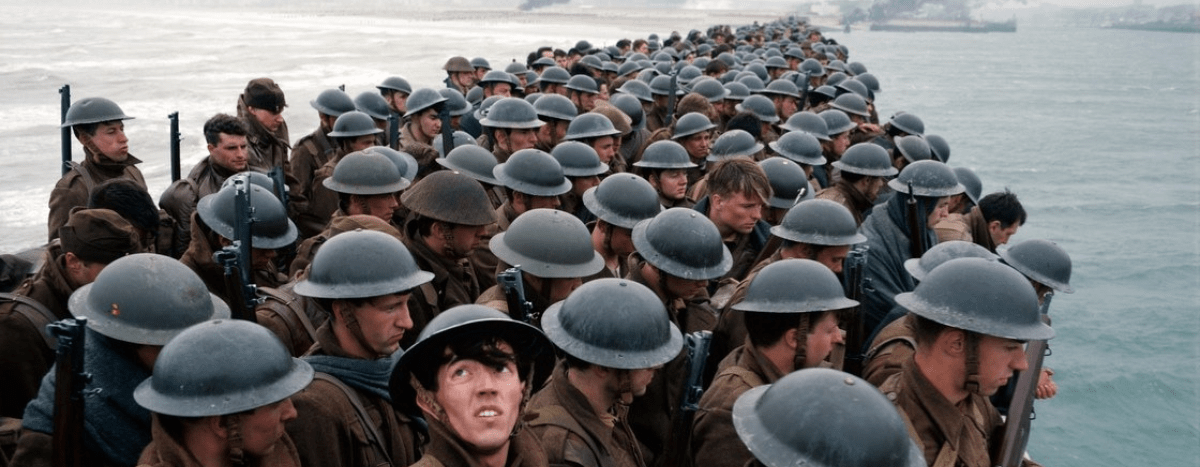
How British pop-culture gave birth to Brexit
Published on
For decades, British movies and television shows have been sanitising the country’s controversial and violent past, laying the foundations for the nationalist pop-culture that lies at the root of Brexit.
If you think TV is dead, think again: TV is more powerful than ever in shaping our perceptions and influencing our mindset. We may no longer be glued to traditional channels, anxiously waiting for something to air, but in the era of Netflix and smartphones we are constantly hooked to our screens. TV hasn’t died—it’s merely morphed. And the more addicted we are to our screens, the more the content we consume informs and reflects the societies we live in. This has never been more apparent to me than living as an Italian migrant in Brexit Britain.
It struck me when the German ambassador to the UK, Peter Ammon, gave an interview with the Guardian on the dangers of portraying the UK as a standalone victor of the Second World War, a “historical inaccuracy” that recently appeared in both the films Dunkirk and Darkest Hour. Ammon underlined that this image has fed into growing British Euroscepticism. Ammon’s statement made me realise that I was not alone, nor was I imagining things; the exclusionary nationalism at the core of the Brexit campaign was digging its claws into British culture, and TV was no exception. This historical nostalgia fuelled the UK’s decision to leave the EU, and has since only become more pronounced, making political compromise impossible.
Historical nostalgia isn’t new to British TV. Whilst other European countries certainly are no stranger to this phenomenon, the fact that the UK didn’t lose either of the World Wars means it never dealt with large-scale devastation and defeat – merely a reduction in size. And this glorification of the UK’s past has always been a an inescapable part of British television. Everywhere you look, there is period TV—I’m fairly confident even an underground bunker would screen the latest interpretation of Queen Victoria’s antics. Indeed, a constant stream of shows like the Tudors, Queen Victoria and the infamous Downton Abbey set an important precedent for a sanitised, uncritical perception of Britain’s past. It’s a subtle way of entrenching exclusionary nationalism in the British psyche. Watching these shows as an outsider, I felt I could never reach this archetypal level of Britishness. Indeed, this idea of the UK’s successes—independently from other countries, and skipping nearly all of Britain’s uglier historical chapters—helped the Brexit campaign cement the idea of Britain as a country that is ‘different’ and ‘special’; one that doesn’t need international cooperation but can, as it always has, succeed on its own.
And it’s only gotten worse. Emboldened by the success of the Leave vote, TV in Britain perfectly reflects rising nationalism in the UK. International collaboration and British multiculturalism are erased, paving the way for a Britain that will now literally isolate itself in an increasingly interconnected world.
Ammon was right; Dunkirk and the Darkest Hour, whilst both enjoyable films, are part of the problem. Churchill was not as shy and teetering in real life as he is in the film; he was notoriously bossy and entitled. One scene in the film shows him speaking to regular citizens on the tube, after which he is inspired to scrap the peace negotiations and continue waging war on Germany. This never actually happened. In reality, Churchill never even seriously considered the peace negotiations. This fictitious incident, combined with the actor’s false demeanour and sensationalist nationalist speeches, is shocking; how could a film that so blatantly manipulates history be so popular? More interestingly, one can wonder whether it consciously sanitises a controversial political figure (I, like many others, believe Churchill is unjustly heralded as the bringer of freedom and democracy for defeating the Nazis, but not held sufficiently to account for the Bengali famine. His final speech in the film makes you shudder: it is nothing less than an outright glorification of British nationalism that makes a “foreigner” like me feel afraid for my future in the country.
Similarly, Dunkirk’s most blatant historical inaccuracy was the whitewashing of the military forces stuck on the French coast. In one fell swoop, the efforts of the Royal Indian Army Services Corp companies, as well as that of four crewmen on British merchant vessels from South Asia and East Africa is effectively erased. Whilst providing an refreshingly vulnerable portrayal of masculinity and war, Dunkirk perpetuates the image of the UK as most glorious when acting alone. Seen in this light, Kenneth Branagh’s final line, “we’re going home”, as he looks to England’s shores isn’t just a happy ending for a bunch of psychologically traumatised soldiers returning home to their families: it is followed by Churchill’s speech and images of newspaper clippings announcing Britain’s victory, echoing a nationalism that assures Brexiteers that the UK has never needed anyone else.
Another film worth mentioning is Victoria & Abdul, which makes a mountain out of a molehill by portraying Queen Victoria’s probable fetishisation of an Indian servant into the single most meaningful thing to happen to her, ever. The absurdity of the film—which is peppered with jokes at the expense of Muslim women while again sanitising and completely infantilising Queen Victoria—is nothing if not irresponsible. The film’s final shot of a statue of Queen Victoria in India perfectly captures how it portrays the queen’s ruthless reign as Empress of India as little more than a fun cultural exchange. The only character to occasionally bring up Britain’s violent reign in India is literally killed off. Here, we have another playful reminder for the Brexiteers of how easily the UK conducted its affairs abroad, and how it transitioned out of the colonial era relatively unscathed.
It is a well-known, yet often forgotten, fact that TV not only reflects the zeitgeist, but also has a massive hand in shaping it. As we binge-watch millions of shows and films, the way we perceive and process reality subtly changes. After all, it is through culture, in all its forms, that we not only learn how to interpret reality, but also imagine what is possible. For decades, British TV has been sanitising the country’s controversial and violent past. In doing so, it has laid the foundations for a nationalism that paved the way for Brexit to occur. Whilst nationalism isn’t necessarily all bad, it turns problematic when it becomes exclusionary and xenophobic.
Instead of amplifying these nationalist sentiments, TV could be the perfect antidote to them. By critically approaching history, we can learn about the violence of exclusionary nationalism and the merits of transnational cooperation, which has existed in Europe for centuries. This means giving directors who take a critical and objective perspective on history a mainstream platform, to allow people to pick and choose and confront perspectives.
It certainly doesn’t help that Europe lacks such a platform. But people are sick of stagnant Brexit talks and constant disinformation. A straightforward analysis of past and present-day Europe in cinema and television may be just what the doctor ordered.




